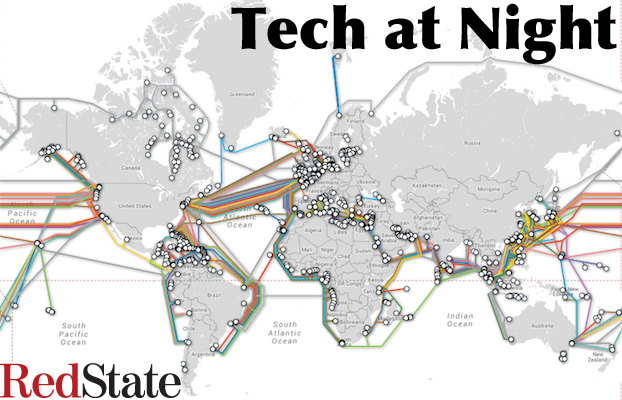
Barack Obama’s FBI director, James Comey, was previously featured in this space for his declaration that he’s troubled, that Americans would be able to take proactive measures to encrypt their own data, in ways the FBI couldn’t read at will.
He tried to intimidate and bully Apple and Google into avoiding adding effective cryptography to iOS and Android. This is important because it’s only effective cryptography that would allow private citizens and corporations to protect themselves from spying by foreign governments and government-backed hackers.
Continue reading »

Sometimes the government cheers the idea that your data is being protected from the bad guys. Other times, the government grumbles and complains.
It turns out they’re fine with your data being at risk, as long as it means government can get to it whenever it wants. Funny, that.
Continue reading »

According to the government, if they think you’re breaking the law, they have the authority to break into your servers. Given the possibility of errors, combined with the tendency of third parties to gather data which could help, this puts private citizens online in a tricky spot.
Now, don’t get me wrong, I’m not sympathetic to the Silk Road scum, and I’m inclined to look the other way when an anarchist gets stomped by the state.
However, Google is right that it’s government’s fault that there’s a new push for encryption online.
Even if you support NSA’s role online, a government that is not transparent while actively searching people’s data, is a good reason to keep your data encrypted. Governments make mistakes, and data gets leaked. Just look at Bradley Manning’s case, or Edward Snowden’s.
Should our data be at the mercy of anarchists, traitors, and opportunists? No, we have the right to secure our data. And government has no business telling us they need special access. Democrats have wanted that since the Clinton era, with the Clipper program of so-called Escrowed Encryption (where you can encrypt your data, but government can always decrypt it), but it’s never had any popular support. Rightfully not.
If Belkin can’t even keep routers running, why would anyone trust the Internet of Things?
There’s no such thing as a ‘light’ or ‘forbearance’ version of Title II Reclassification, which would cause the Internet to be regulated by the FCC like the phone system. 1930s regulation for 2010s technology.
Net Neutrality violations are a myth, finds the European Commission, after spending a year trying to gin up justification for government control of the Internet.

Have to say, sometimes enforcement of things is rather inconsistent in this country.
If you or I (or Aaron Swartz) were caught making unauthorized access to other people’s computer equipment, to engage in a Denial of Service attack, we’d risk criminal charges. Marriott International? Not so much.
Continue reading »

We need the NSA. I know the new hotness is following after Rand Paul’s inane blathering, and finding reasons to complain about the NSA. But rather than old and busted, the NSA is actually an important thing to have and to defend.
Continue reading »

Sometimes, we forget just how little privacy we have against a determined attacker. So often we rely just on the fact that we believe our communications are of so little importance, that nobody will take the effort to try to snoop on us.
So once in a while we get concerned, when we hear about some sort of mass snooping, that means no extra effort has to be engaged to read our own individual, personal data. Then we want to assign blame, as though this mass snooping caused our lack of privacy.
We need to fix this muddled thinking and understand the limits of our privacy.
Continue reading »

Anarchy is back. The last time anarchy was a noticeable political movement in the world, bomb throwing anarchists were killing heads of state and government leaders, as part of their scheme to take the whole system down, and impose socialist rule. Of course they claimed socialist rule didn’t really count as rule, because ideology.
Well, these days world leaders are much better protected, so instead the anarchists are going after websites and just trying to disrupt, particularly online. We must be mindful of this, create cybersecurity policies that let government and industry share information (through bills like CISA), and make sure to investigate and prosecute these crimes.
Continue reading »
